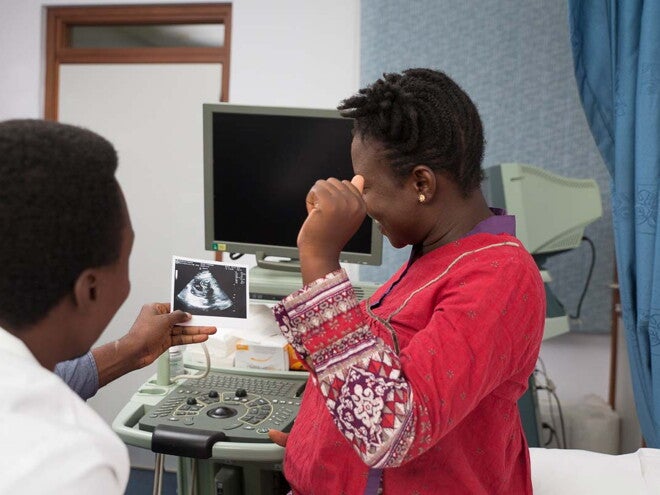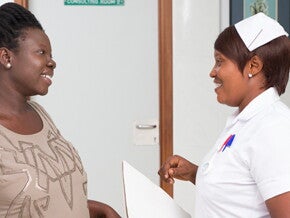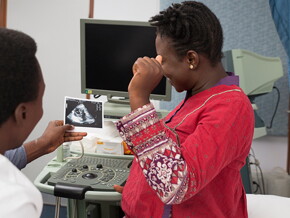
Throughout your second trimester, you'll be visiting your healthcare professional about once a month provided everything is progressing normally. Your healthcare professional will take your blood pressure and monitor other health indicators at each visit. Keep reading and learn more about what to expect during your second trimester of pregnancy.
Monitoring your weight gain
Healthcare professionals agree that one of the best things you can do to prepare for the delivery of a healthy baby is to eat right and gain the extra weight you'll need to support another life. Weight gain recommendations during pregnancy vary according to your pre-pregnancy body mass index (BMI). If you started your pregnancy at an average weight for your height, you can ask your healthcare professional what this is; you should aim to gain 0.4 kg (3/4 of a pound) per week during your fourth, fifth and sixth months. Please consult your healthcare professional for personalized advice on how much weight you should gain.
Monitoring your fundal height
"Fundal" height is the distance in centimeters between the top of your uterus and your pubic bone. This monitoring usually starts about half way through your pregnancy, around 20 weeks along. By regularly measuring your belly throughout the second and third trimester, your healthcare professional is able to monitor the changing size of your uterus and the growth and position of your baby.
Tests in the 2nd trimester
Healthcare professional visits during pregnancy may include a number of tests that you may receive at your various check-ups. These are regular procedures, which can help your healthcare professional determine/monitor how you and your baby are progressing. Here's what you can expect:
Urinalysis:
This test measures the protein and sugar in your urine. It will detect excess protein, which can be a warning sign of Preeclampsia. Urinalysis is also routinely used to check for urinary tract infections and specific sexually transmitted infections that may affect you and your baby’s health, such as chlamydia.
Rhesus (Rh)-antibody-level test:
Most people have a specific protein in their blood called the Rh factor. Those who don't are Rh-negative. If a woman tests Rh-negative, the father of the child should also be tested for his Rh factor because problems can arise when an Rh-negative woman conceives a baby with an Rh-positive man. The tests are usually done about halfway through the pregnancy.
Ultrasound:
This test uses high-frequency sound waves to visualize the unborn baby. It's been used for more than 25 years. At 18-20 weeks of pregnancy, an “anatomical” ultrasound is used to monitor normal fetal development and check for potential abnormalities of your baby’s skeleton and major organs. This ultrasound can also determine the sex of your baby with very good accuracy.



